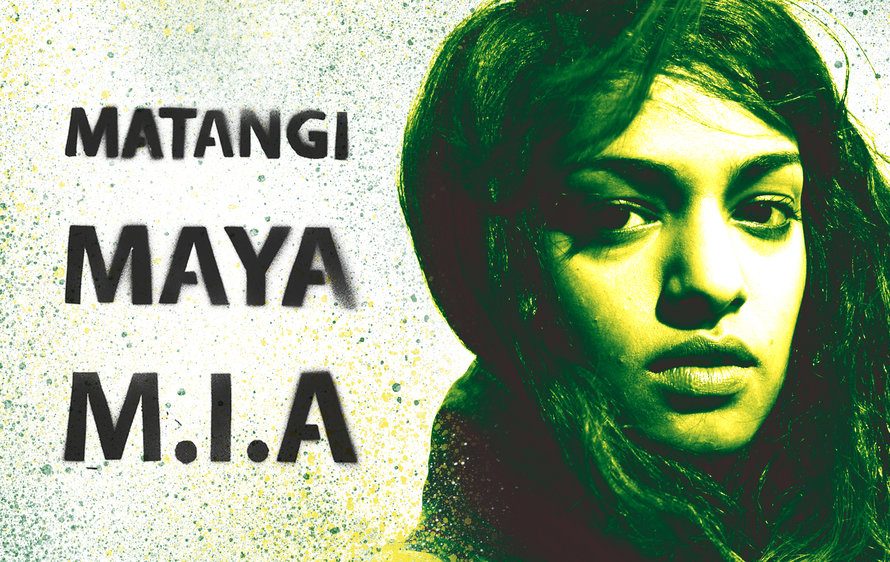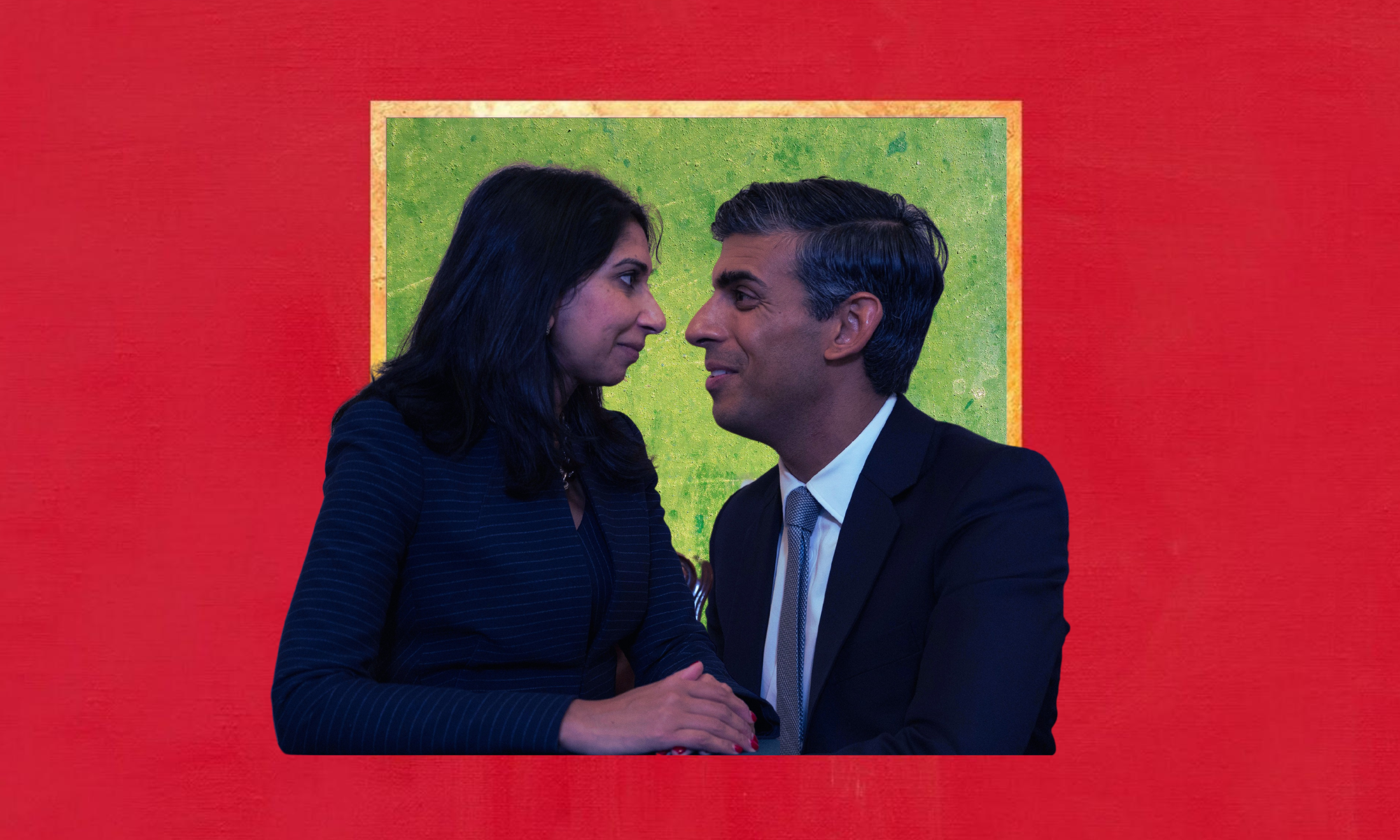
Image: Dogwoof / MATANGI / MAYA / M.I.A.
It’s very rare to see a documentary based on a contemporary brown woman on the big screen.
And when I say a brown woman, let me be more specific and say, someone who is from the sub-continent of India, thus her version of brown is a mix of red and yellow undertones and from a corner of the world that is still seen as an afterthought. A woman whose black Dravidian hair contrasts with purposefully dyed bleach blonde, and style that can only be described as a combination of neon and culture.
The first blue moon to not only connect with the millions of minorities across the world and specifically, the diaspora in the UK, but to be the face for activism when the stories that happen around brown women who look like M.I.A, are usually those of passivity, those who are praised for staying quiet and being grateful for simply being here.
When I was at the screening for Steve Loveridge’s award-winning MATANGI / MAYA / M.I.A, a personal profile of artist better known as M.I.A, it was hosted by The Asian Awards and what was made clear in the speech beforehand was that M.I.A has been the most successful British Asian woman in the world. And it wasn’t until the film was unravelling that I truly realised how powerful her message and existence has been. How M.IA had been shouting for change for those who are rarely celebrated in the limelight i.e. poor, brown women and children suffering from a genocide covered up as a civil war. She’s been wearing the work of activism before the word became a cool in ‘woke Hollywood’. Though there’s nothing wrong with the latter, this is a thank you letter to Mathangi “Maya” Arulpragasam for teaching me how to be an activist in my own right.
What could have been a documentary on M.I.A’s music was actually a string of DIY home-made videos recordings of M.I.A talking about the experience of being a Tamil in Sri Lanka from a young age. This is the first lesson M.I.A teaches when it comes to speaking out – she starts by using herself and her surroundings as the muse and meaning behind her purpose. From her teens, she doesn’t underestimate the power of sharing message even when it’s at a time where recording your thoughts is seen to be dangerous, instead of the norm.
The artist at present only speaks to the camera for a few takes but what we grapple with during the entire documentary is the evolution of all the contradictions she’s had to live through. Being the daughter of Arul Pragasam, political activist and founder of the armed Tamil resistance, she went from hiding from the Sri Lankan government in a bloody war to being a refugee and moving to London; only to then become a filmmaker, landed in the entertainment world and would lead to her accidentally becoming a pop star.
But all the while, M.I.A was trying to bring the news of the Tamil genocide in Sri Lanka to mainstream media. As she became more popular, it was this ‘contradiction’ of being a recognisable pop star with everyone singing the lyrics to Paper Planes and trying to also talk about Tamil rights that branded her as a champagne activist.
Lynn Hirschberg profiled M.I.A for The New York Times, writing: “I kind of want to be an outsider,” [M.I.A] said, eating a truffle-flavoured French fry” implying that M.I.A was very much part of the halves M.I.A was trying to read bullshit on. When in fact it later came out that Hirschberg shaped the piece – and ordered the truffle fries – so M.I.A was just another pop star trying to slate the establishment they benefit from. This is a continuous theme throughout the entire documentary as M.I.A speaks of being censored, whether it’s planning an interview with Bill Maher beforehand, only to go live where the only topic spoken of is her British accent. Or speaking about the lack of Tamil rights in Sri Lanka for 45 minutes on American news channels for it to only be cut to those few minutes she speaks about her new music.
Not only is M.I.A’s resilience in trying to get the voices of those who are not accessible to a mic – or the closest TV station – an inspiration to us all but what’s made clear is that this struggle to get your voice heard when it concerns a complicated issue is not a problem just within mainstream media. It’s a wake-up call that as a society, we still find it hard to those accept women in all their form. They are part of a larger system that works only when women like M.I.A do not speak out. But in the words of Cardi B, “Knock me down nine times but I get up ten” and that’s exactly what M.I.A does. She teaches us by example as she knows her voice could be the difference in saving a life.
“M.I.A is expected to shut up because she’s now wealthy. She is expected to let go of her history of being a refugee, of being a Tamil in Sri Lanka and just remain pretty for the big screen”
M.I.A is expected to shut up because she’s now wealthy. She is expected to let go of her history of being a refugee, of being a Tamil in Sri Lanka and just remain pretty for the big screen. Yet M.I.A remembering where she came from reminded me to find my own silver lining that comes from imposter syndrome felt similarly by many refugees and immigrants. As a child of an immigrant, this feeling of guilt and questioning why am allowed to be educated, be independent and live largely by my own wishes when those who look like me and are still in the motherland will never have those opportunities. M.I.A reminds us to do something with our privilege and agency at hand instead of pulling up the drawbridge behind us.
The artist and fighter for human rights is not perfect. She was unapologetic about being replaced by Grace Jones as the headline act at Afropunk due to her comments on Black Lives Matter, and has been seen to stumble in interviews when giving examples about the Sri Lankan regime against the Tamils, being criticised for being too anecdotal. But she’s also shown us that when you have a voice, your message can be bigger than yourself and what you’re going through.
M.I.A’s ability to produce art, be a mother, fall in love and care about who and what she influences while remembering the bigger picture is just as much of a lesson in activism as it is a life lesson. It’s a reminder that we women of colour are dynamic beings and we should not try to cut ourselves in halves and quarters to fit a more pleasing role. M.I.A for Prime Minister, please.
MATANGI / MAYA / M.I.A. is out now and available to buy on iTunes.
Correction: an earlier version of this article described M.I.A. as Indo-Aryan, however the artist is Dravidian. The description has been amended to reflect this.









